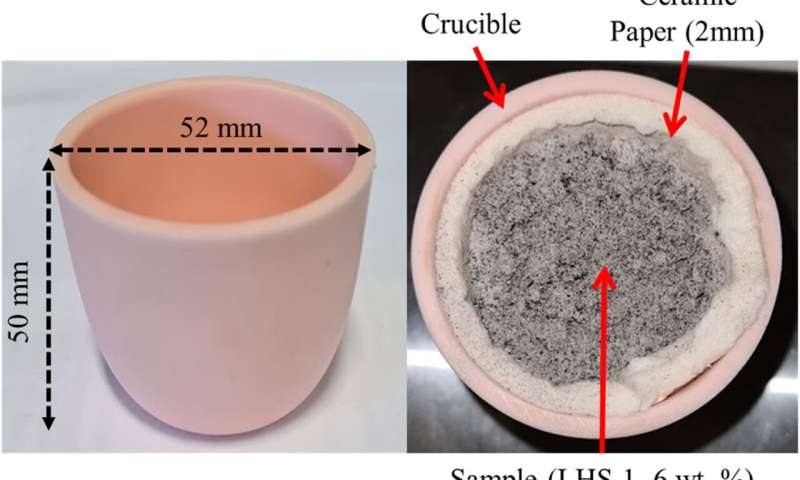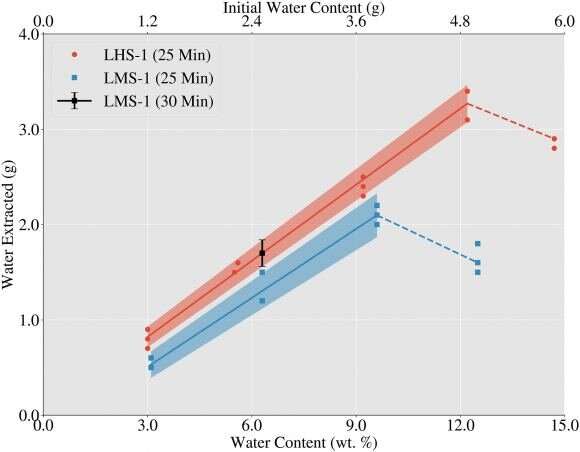This article has been reviewed according to Science X's editorial process and policies. Editors have highlighted the following attributes while ensuring the content's credibility:
fact-checked
peer-reviewed publication
trusted source
proofread
Thirsty on the moon? Just throw some regolith in the microwave

No matter where we go in the universe, we're going to need water. Thus far, human missions to Earth orbit and the moon have taken water with them. But while that works for short missions, it isn't practical in the long term. Water is heavy, and it would take far too much fuel to bring sufficient water to sustain long-term bases on the moon or Mars. So we'll have to use the water we can extract locally.
Fortunately, water is a common molecule in the universe. Even the moon has plenty of water to sustain a lunar colony. The only real challenge is how to extract it. As a recent study published in Acta Astronautica shows, that might be as easy as popping things into a microwave oven.
Although water is present in tiny quantities all over the moon, it is most concentrated in the polar regions. Pockets of ice are concentrated in the shadowed regions of the poles. The consistency of these ice pockets is similar to snow mixed in with what is mostly dusty sand particles. Imagine trying to extract drinkable water from such material. If you tried to heat it on your stove, it would be so dry that it wouldn't heat evenly. And even if you were successful in melting the ice, you'd end up with a damp sludge.
Previous studies using simulated lunar material have shown that while traditional conductive heating can extract water, it isn't particularly effective. So it takes a lot of power to do, making it difficult to scale up enough to sustain a colony. So in this study, the team looked at using microwaves to extract water.

If you've ever reheated something in a microwave oven, you know that a common problem is that it can sometimes be hit or miss. Not only can you get hot regions and icy regions side-by-side, like a poorly cooked hot pocket, they can also heat things in such a way that they are slightly damp. That's because water molecules are strongly excited by microwaves and your oven can cause them to shift in a material, usually toward the surface. So we have long-known microwave cooking can extract water from material. The team wanted to know if it could do it with lunar material effectively.
The team focused on two simulated lunar materials. One simulated the lunar highlands (LHS-1) and one simulated the lunar mare region (LMS-1). They then looked at how efficiently water could be extracted under different percentages of ice content. What they found was that using a special microwave oven of just 250 Watts, they could extract about 55% to 67% of the water within about half an hour. That is practical enough to extract plenty of water from the polar regions, and the microwave technology they used would be easy to build and maintain on the moon. Interestingly, the method is less effective when you get to materials with higher water content, where traditional conductive heating is more effective.
More information: James D. Cole et al, Water extraction from icy lunar simulants using low power microwave heating, Acta Astronautica (2023). DOI: 10.1016/j.actaastro.2023.04.035
Journal information: Acta Astronautica
Provided by Universe Today




















